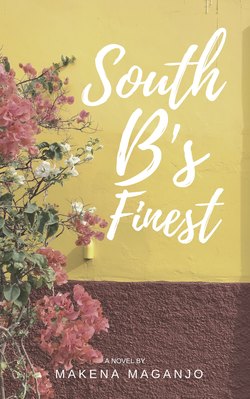Читать книгу SOUTH B'S FINEST - MAKENA MAGANJO - Страница 8
На сайте Литреса книга снята с продажи.
CHAPTER FIVE The Kiosk, February, 1991
ОглавлениеWhen Ng’ang’a had opened his Kiosk just outside Malaba Estate three years earlier, he had not expected business to be as good as it became. For that, he had the country and its newspapers to thank. When customers came to buy milk or majani, their eyes would settle on the newspapers he hung inside the Kiosk on a rope secured with brightly coloured pegs. The day’s headline alone would elicit a “Where is this country going?” from one person and this question was enough bait to draw in and keep a hearty debate going which led to customers lingering at The Kiosk longer than they’d intended.
An observant man, Ng’ang’a moved the newspapers from inside The Kiosk to just outside, next to the window where customers made their purchases. Over time, he invested in small wooden stools and two plastic chairs that he set outside The Kiosk so that those who wanted to buy and chat could do so in comfort. From here, he expanded his stock to include mandazis, weak sugary tea and uji served in tin mugs with floral patterns. For the beverages he charged five shillings per cup and the mandazis went for another five bob a piece. At just ten shillings for a drink and a snack, Ng’ang’a’s Kiosk became an informal congress for Malaba Estate, rivalling the real estate association in power and scope. It was at The Kiosk that Malaba’s residents decided to oust one set of askaris because there was a rumour they were in cahoots with petty thieves who’d been plaguing the estate. It was also at The Kiosk that the same same residents decided to open an investment fund together (this fund is still being litigated as I write). Wasn’t it also at The Kiosk that the Karanjas found out that their eldest son had run away with a girl from the neighbouring, Karibu Estate?
The real winner for The Kiosk was when Ng’ang’a introduced a little red transistor radio with a long antenna that would break on the same day the country did, eight years later. He would switch it on immediately he opened the Kiosk and leave it on till his last customer of the day had walked off into the night. The radio livened up conversations and provided a backdrop of music for hot afternoons when Malaba residents would drift out of their homes, bored and restless, in search of willing conversationalists. Conversations were often and readily punctured with impromptu sing-alongs when say Super Mazembe’s Kasongo came on or the darling of the radio waves, Sina Makosa by Les Wanyika.
A concentrated hush would fall around the Kiosk during the one o’clock news as customers listened for any new announcements from the President’s administration. In those days, President Moi was in the habit of firing Cabinet Ministers over the lunch-time news. It was, one imagines, an efficient way of dispensing of prominent politicians who’d receive the news of their unemployment through this radio waves as well.
There was an ongoing argument between Ng’ang’a and his patrons because the moment six p.m. hit, he would switch radio stations from K.B.C.’s National Service to its General Service and the music now termed zilizopendwa would be replaced with the General Service’s English ‘Golden Oldies’ on ‘Sundowner’. Nothing but nothing could beat the musical excellence of Jimmy Reeves’ rendition of Take My Hand Precious Lord according to Ng’ang’a and most Kikuyu men of a certain age group. Ng’ang’a would sooner lose customers than miss an opportunity to hear Dolly Parton crooning her country tunes as the sun set behind the Kiosk.
Overtime, the other kiosks around would copy Ng’ang’a but Malaba’s residents, for all their gossip, were loyal to him. At any rate, his Kiosk was conveniently opposite their estate gate.
